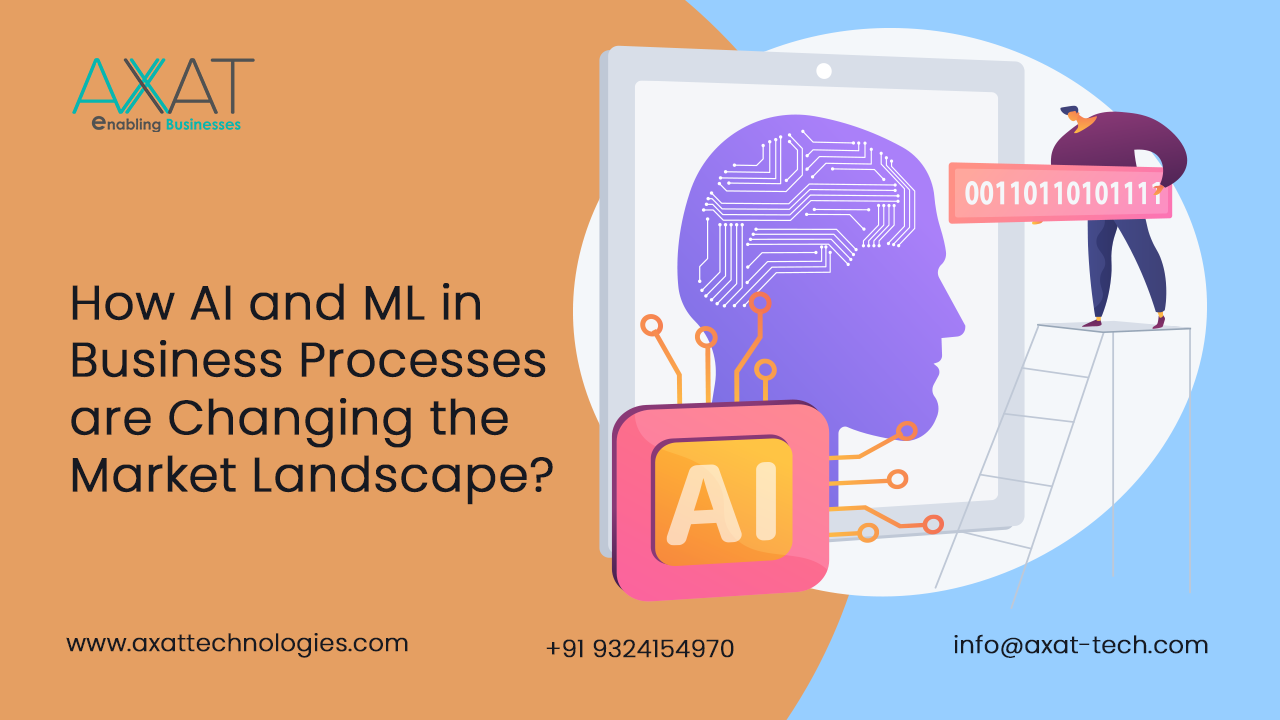In the ever-evolving realm of business, integrating Artificial Intelligence (AI) and Machine Learning (ML) has become more than a mere trend—it's a transformative force reshaping the very fabric of the market landscape. As organizations navigate the digital age, these technological powerhouses are not just tools; they are catalysts propelling businesses into a new era of efficiency, innovation, and strategic decision-making. The fusion of AI and ML in business processes heralds a paradigm shift, offering unparalleled opportunities for growth, optimization, and a competitive edge. In this landscape-altering journey, businesses are not merely adapting to change but harnessing the potential of these intelligent systems to revolutionize how they operate, compete, and ultimately, thrive in a dynamic marketplace.
Automating Repetitive Tasks:
One of the primary contributions of AI and ML to business processes is the automation of repetitive tasks. Mundane and time-consuming activities that once bogged down human resources can now be seamlessly handled by intelligent algorithms. This not only frees up valuable employee time but also minimizes errors, leading to enhanced overall productivity.
Data-Driven Decision Making:
AI and ML empower businesses to make informed decisions by extracting meaningful insights from vast datasets. These technologies analyze patterns, trends, and correlations, providing valuable information that aids strategic planning. With data-driven decision-making becoming the norm, companies can respond swiftly to market changes and customer preferences, gaining a competitive edge.
Personalized Customer Experiences:
Customer expectations are on the rise, and AI and ML are instrumental in delivering personalized experiences. By analyzing customer behavior and preferences, businesses can tailor their products and services, creating a more engaging and satisfying interaction. This not only fosters customer loyalty but also opens up avenues for upselling and cross-selling.
Enhanced Predictive Analytics:
Predictive analytics powered by ML algorithms allows businesses to anticipate future trends, market fluctuations, and customer demands. By leveraging historical data, these systems can forecast outcomes, helping companies proactively adjust their strategies. This foresight minimizes risks and positions organizations to capitalize on emerging opportunities.
Improved Operational Efficiency:
AI and ML streamline internal processes, leading to improved operational efficiency. From supply chain management to HR processes, these technologies optimize workflows, reduce costs, and minimize wastage. The result is a leaner, more agile business model capable of adapting to market dynamics with greater ease.
Fraud Detection and Security:
In an era where cyber threats are omnipresent, AI and ML play a crucial role in bolstering security measures. Advanced algorithms can detect anomalies and patterns indicative of fraudulent activities, protecting businesses and their customers from financial and reputational damage. This proactive approach to security is paramount in today's interconnected digital landscape.
Human Resource Management:
AI and ML are transforming human resource management by streamlining recruitment processes, analyzing employee performance, and predicting workforce needs. Automated resume screening, predictive analytics for employee retention, and personalized training programs are just a few examples of how these technologies are reshaping HR practices.
Final Thoughts
The integration of Artificial Intelligence (AI) and Machine Learning (ML) into business processes represents a seismic shift in the market landscape. Companies that embrace these technologies gain a competitive advantage by unlocking new levels of efficiency, agility, and innovation. As we navigate the future of business, the strategic adoption of AI and ML will not be a choice but a necessity for those looking to thrive in an increasingly dynamic and complex marketplace.
